
Content
CEO views on reputation management
CEO views on reputation management
by Kevin Murray, Chime Communications plc and Jon White, The John Madejski Centre for Reputation
An excerpt from the report:
This report summarises a series of interviews, conducted mid-2004, with 14 Chief Executive Officers and Chairmen from
major UK and international organisations.
We have written this report around a number of key issues and themes which emerged during the interviews. In our view, this provides the best way of understanding the issues which preoccupy CEOs about public relations and their own role in reputation management.
The key themes and issues that emerged:
- Must expenditure on public relations demonstrate a measurable return on investment (ROI)?
- What contribution can public relations make to organisational reputation?
- Who owns the management of corporate reputation and what is the CEO’s link to that reputation?
- What do CEOs see as the main benefits of public relations?
- How would CEOs describe the function of public relations and the role of its practitioners?
- How do CEOs rate the calibre of people in public relations?
- CEOs and Chairmen “intuitively” value public relations, see it as an essential cost of doing business, and essential to business performance and organisational performance (“mission critical”).
- CEOs do not feel that PR effectiveness is amenable to precise measurement, being long-term and iterative in effect, or being an aid to avoiding surprises or mistakes They do not feel a great need to demonstrate a return on their investment in PR.
- Practitioners need greater confidence in the use of available measures, but more importantly better training and preparation to argue the value of the business and organisational contribution they can make.
- CEOs recognise a shortage of talent and expertise among practitioners, which – if addressed – would also answer questions about the value of public relations practice. The majority of those interviewed referred with confidence to their own advisers.
- CEOs feel that there is under-investment in the practice of public relations.
- All the CEOs interviewed felt they owned reputation – mostly because this was derived more from what the organisation did than from what it said.
- There is a correlation between overall corporate reputation and the CEOs’ personal reputation.
- Good PR – initiated through listening and reporting back – can act as the conscience of the organisation and inform top management decision-making. However, many CEOs worry that they do not have a good enough ‘radar’ for emerging issues.
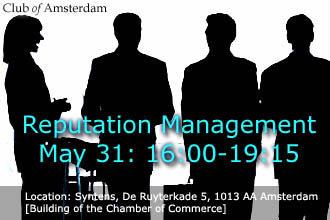
Club of Amsterdam blog
 | Club of Amsterdam blog October 26: Synthesis of elBulli cuisine October 14: The new Corinthians: How the Web is socialising journalism September 20: A Future Love Story |
News about the future of Reputation Management

Online Reputation Monitoring
Monitoring your company’s online reputation will help your company in many different ways including:Crisis communication – React quickly to erroneous comments or stories about your company, executives and products/services.
Control rumors and false allegations – Take action to correct a false rumor before sites start linking to it and it gains further visibility.
Competitive intelligence – Be aware of your competitors’ efforts and how they are being received by consumer generated media (blogs, message boards, etc.).
Leverage developing trends – Get a jump-start on your competition by identifying new product and service trends early on and determine how to best leverage these opportunities.
Monitor marketing efforts – Track the reach of your company’s marketing and public relations efforts as they pertain to the online community.
Expand outreach efforts – Determine influential industry blogs as well as identify key online influencers for lead generation and media outreach purposes.
Add positive content to your website – Further leverage link and keyword-rich online placements by posting them on your company website (or blog) to increase your search engine visibility.
News about the Future

Global Trees Campaign
Extinction threatens 10 percent of the world’s trees — more than 8,000 species — and very few are being conserved in the wild. The Global Trees Campaign is a partnership of conservation organizations dedicated to finding solutions to the problem.
The site highlights conservation initiatives around the world, from Belize to Vietnam, as well as profiles of 30 endangered trees, a searchable database of threatened species, a photo gallery for use by the media, downloadable screen savers and a list of links to useful resources elsewhere on the Web.

GoldVish handcrafts mobile phones using gold and diamonds in combination with state of the art mobile phone technology.
Next Event: Wednesday, May 31, 16:30-19:15
the future of Reputation Management
When: Wednesday, May 31, 2006, 16:00-19:15Where: Syntens, De Ruyterkade 5, 1013 AA Amsterdam [Building of the Chamber of Commerce]

Mirko Creyghton, Market Leader, Burson-Marsteller Netherlands
Is reputation manageable?

Ingo Heijnen, Group Manager, Hill and Knowlton
Reputation management is not the communicator’s toy

Lucas Michels, Director, Fleishman-Hillard Amsterdam
Reputation management, is it effective?

Bram Alkema
Business Developer, FISQ, Media Monks
Summit for the Future blog
 | Summit for the Future blog http://summitforthefuture.blogspot.com July 13: Summary of the Summit for the Future 2006 May 22: Dispatches from the Frontier |
Recommended Book
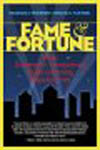
Fame and Fortune: How Successful Companies Build Winning Reputations
by Charles J. Fombrun, Cees Van Riel
Companies with strong reputations are better able to attract customers, investors, and quality employees-and to survive crises that would destroy weaker firms. Fame and Fortune shows how to quantitatively measure your company’s reputation, estimate its business value, and systematically enhance it over both the short- and long-term.
First, you’ll learn how to benchmark your firm’s reputation against key rivals in six key areas, ranging from product quality to emotional appeal. Next, you’ll discover that the winners of global reputation surveys get to the top by following a set of core principles through which they build visibility, distinctiveness, consistency, authenticity, and transparency.
Then, starting from where you are now, you’ll learn how to implement genuine corporate initiatives that strengthen two-way dialogue with all your stakeholders, and build the “reputational capital” you will need to succeed-and thrive.
Impressions from the Summit for the Future 2006
The Club of Amsterdam would like to thank the audience, speakers, knowledge stream leaders, catalysts, partners for an inspiring and successful Summit for the Future 2006!
We had more than 300 participants from 31 countries!
Conferences

“eco6 is the first genuinely international event to address Socially Responsible Investment (SRI) and Corporate Social Responsibility and their interaction – because we believe that’s the only way you can truly get ‘the bigger picture’.
It will bring together fund managers, analysts, financial institutions, private investors, academics, activists, corporations, institutional investors, charities and NGOs from all around the world. As well as some of the biggest and most influential names in SRI and CSR today.”
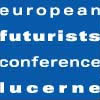
MAKING SENSE OF THE FUTURE
Practical approaches, critical insights, emerging business models
Welcome to the 2nd European Futurists Conference Lucerne. You are invited to an unique European conference during which innovators, change agents, and heads of strategy, innovation, and business development will discuss practical approaches, critical insights, and emerging business models with professional futurists – in short, Making Sense of the Future!
We again have scheduled the Pre-Conference with a focus on new practical approaches. It is meant for all practitioners who aim to update their toolbox to look into future challenges and opportunities.
The Main Conference delivers critical insights and presents?business models of the emerging new world. It is for decision makers, change agents, innovators, strategists, and future experts in business and public administration.
For the first time, we created an opportunity for marketers, innovators and strategists to have in-depth alternative seminars to the Pre-Conference. Future Seminars are selected by us but presented and set up by private partners.
The Future of Leisure Travel – Trend Study
The Future of Leisure Travel – Trend Study
by Gottlieb Duttweiler Institut
Summary
The market for holidays and travel is becoming more dynamic and complex. Customer behaviour is increasingly incalculable. Although short-run movements in the market are well documented, there is no overall picture of longterm perspectives. The question is: in what direction is the holiday and travel sector headed?
This study analyses the wishes and values of travellers. It describes the driving forces of change and answers questions of relevance to the market: who will travel in the future? What are their motivations? What new travel markets are to be seen on the horizon?
What will be the most popular destinations in 2020?
The most important driving forces for change in tourism
1. Social drivers
_Ageing society: In 2020, the elderly will be in the majority in Western Europe. Children and young people will be in short supply.
_Individualisation. Growing demand for individual holidays. Falling demand for package tours.
_New family structures. More and more singles. Ever fewer families with children.
_Health consciousness grows. Destinations with potential health hazards will come under pressure. Areas with contaminated water and beaches, polluted air, ugly buildings, a risk of infection, etc., will be avoided.
_Value orientation increases resulting in a new competition of values. Ecological, ethic and social values become ever more important.
_Decline of the middle class in Western Europe.
_Leisure time declines. Western Europe must work longer again. Raising the pension age retards the growth of senior travel.
2. Technological drivers
_Availability of information. The spread and performance of information and communication technology continue to increase. Access to tourist and booking information will become even simpler, faster and cheaper.
_Transport: more, faster and cheaper long-distance connections.
_New search and mapping services. Geo-tagging, Google Earth and GPS revolutionise maps.
_Tracking services make it possible to mark travellers like parcels and to locate them at any time.
_Extreme engineering: opening up new destinations that were previously closed to tourists, e.g., underwater hotels and space trips.
_Environmental-control technology will become more important. Destinations threatened by natural catastrophes will depend more and more on early-warning, water-treatment and weather-control technology.
3. Economic drivers
_Greater competitive pressure. Tourists expect more for less money.
_Booming Asia. Wealth and power shift towards the East.
_Polarisation of demand for cheap and luxury offers. Growing pressure on the middle.
_Daily rock-bottom prices are normal and expected. The downward price spiral will revolve faster and faster and the margins will shrink.
_End of industrial working in Western Europe.
_Growing vulnerability of financial markets.
4. Ecological drivers
_Unspoilt nature will become scarcer and, therefore, more valuable.
_Climatic change. Regional climatic advantages shift.
_End of the oil reserves.
_Traffic jams will become chronic, the consequential effects increase and make travelling an even greater torture.
_Ozone hole: the sun is dangerous. Sun? Just say no!
5. Political drivers
_Political uncertainties increase and prevent or restrict travel.
_Growth of terrorism. Security measures, visa regulations and entry controls will become even stricter and make travel more complicated.
_Opening up of China. China and its numerous previously unknown sights, could develop into the world’s most popular tourist destinations over the next 15 years.
_Declining trust in politics.
_Disintegration of shared values. Clash of cultures. Intercultural conflicts spread and intensify. Thus, travelling will become more dangerous again.
Megatrends and counter trends – the consequences for the travel industry
_In principle, holiday travel remains a mass business. However, it will be less organised and a more individual form of mass consumption. Holidays will be less frequently booked as package arrangements and more often compiled à la carte. Conventional categories will be dispensed with and the required service and comfort modules booked as required.
_On the other hand, many people are looking for a greater sense of community. In many cases, the need for personal contact and to be together with friends and family is the reason for the journey – and this will become increasingly important. In the future, tourists will expect more meeting and dating services. The growing number of singles calls for services that help them organise their social and love lives.
_As life becomes more complex and chaotic, as we are forced to be more mobile and travel with increasing frequency, we look for holidays as a counterbalance offering a touch of normality and stability – either stay at home or traveling to the same place year in, year out. The variety of arrangements threatens to overtax more and more travellers. How are thousands of elderly people of 80+ expected to get around big air-ports? In the future, straightforward but smart packages will be in demand, too. For simplicity is a privilege and also means VIP treatment: in the «fast lane», travellers get where they want to go quickly and easily without queuing. On the other hand, simplicity also means more travel arrangements for «dummies». Travellers will be given electronic, GPS guardian angels and thus monitored, guided and looked after by «remote control».
_There will be no more clearly defined holiday-leisure segments in 2020. For holidays are becoming increasingly bound up with other activities. The number of hybrid arrangements offered will grow, e.g., hotels that merge with clinics, academies or museums, vacation clubs that also operate handicraft workshops, tower blocks with wellness resorts, cruise liners with temporary jobs.
_By 2020, there will be virtually no unknown destinations any more. The world has been explored. Bombarded with stimuli, the majority of Western Europe’s older customers have experienced virtually everything. Instead of high an extatic high, people want meditative tranquillity and spiritual experiences. People are exhausted by life in the experience society. The more we can afford, the more we come up against the limits of our physical resources. Opportunities for relaxation will become more important than entertainment.
The evolution of tourism
The travel motives differ increasingly over time: travel for survival and occup ational reasons are followed by travel for religious reasons to places of pilgrimage or on crusades. As society grows more complex, people start to show an interest in other cultures. Discovery, knowledge and education are important – as is, of course, the ensuing prestige. Consequently, more emphasis is given to developing one’s own personality in a dialogue with foreign customs, different kinds of art and new ideas, as soon as the individual assumes centre stage.
However, increased travel is not only the result of a growing self-awareness but also of the infrastructure available. The dangers of travelling decrease. Knowledge and travel experience increase while guides make travel easier. With the advent of new means of transport, travelling becomes faster and cheaper. Growing incomes mean that the great mass of people can travel solely for the sake of the experience, recuperation and pleasure: the way is free for tourism as a mass phenomenon.
Why we go on holiday
Basic motives and fundamental desires behind holiday travel, which will become even more important in the future.
_Whatever: No expectations. I travel because I can. Cheap offers generate demand.
_Recreational: The search for concentrated recuperation, relaxation and regeneration. Holidays as an emotional medicine against exhaustion, stress and depression.
_Experiential: The search for new experiences and sensations. To discover one’s self. The aim is not to see new places but to see with new eyes.
_Diversionary: The search for pleasure, sport, games, variety and the chance to get away from it all. The chance to loose one’s self.
_Experimental: The search for adventure and a dialogue with foreign ideas. Freedom from the limits imposed by things familiar and owned.
_Tribal: The search for love and togetherness with partner, family and friends.
_Existential: The search for purpose, happiness, relief and transformation. Travel with the aim of becoming part of something bigger and to find one’s way.
Theses on tourism in 2020
Hyper holiday hubs: «more inclusive» made to measure Tomorrow’s mass tourism will take place in hyper holiday hubs. Gigantic holiday resorts will be built on the Mediterranean, in the United Arab Emirates, Qatar, China and Brazil. These hyper-modern recuperation centres will offer the entire spectrum of what the heart desires: warmth in all variations from direct sunshine to carefully measured thermo treatments, love from a casual affair to a romantic adventure, physical recuperation from cheap face lifting to individual organic anti-aging treatments. With everything – including the airport – conveniently located in the same place.
Holiday hubs offer appropriate ready-made holidays, industrially prepared to the extent that they only have to be unpacked and served. Once the success factors for «good holidays» have been discovered, it will be possible to reproduce them wherever required. Given sufficient reserves of land and good transport links, it will be possible to set up holiday hubs anywhere in the world.
Comfort and Care
People who frequently change their places of work and residence – who travel a lot and spend more time with strangers than with their family – no longer dream of exotic countries. Mobile people with no fixed roots, at home in several different places, yearn for a genuine home. This yearning becomes all the stronger the more difficult it is to achieve what they want. The yearning for home will be more important than the yearning for far-away places.
Given that more and more women work outside the home without more men assuming more responsibility for the housework, it will be increasingly necessary to satisfy the need for security, cuddles and a feeling of being cared for away from home. Tomorrow’s travellers will be drawn less to the attractions of the foreign than to those of Hotel Mama where everything is just like at home – only better.
Social hubs for meeting and mating
Travel markets are relationship markets. We travel to meet families and friends, to encounter new personalities, to have casual sex or because we are secretly hoping for the love of our lives.
The search for a new partner is proving increasingly difficult for a growing number of singles. Under the new circumstances in which we live, conventional ways of finding a partner are inadequate.
One of the main reasons why online dating services are doing so well is that there are no «on-land» alternatives for older people. There is nowhere that people in the mature age groups can go to meet a new partner or lover in an easy and uncomplicated way.
For tour operators, an exciting market for real meeting places will open up as an addition to online-marriage markets, chat rooms and networking platforms.
In future, marriage agencies will provide the software while tour operators supply the stage for romance, as well as the players for potential love stories.
Holidays as emotional medicine
The global trend towards wellness and health is leading to greater health awareness. Good health is the prerequisite for being happy. Health is a growth market because the hunger for health and the battle against aging are never ending. Improved diagnostics and the early recognition of health risks cause people to concentrate more on their susceptibilities. Many of them develop an almost hypochondriac fear of becoming ill and are thus open to many offers that promise health benefits.
On the medical side, the growing specialisation on technical operations also leads to nursing specialisation and emotional care for patients. In particular, the frail, singles and people disappointed by high-tech medicine will increasingly seek emotional support during their holidays.
For tomorrow’s health holidays, the emphasis will be less on the hardware, e.g., bathing facilities, saunas, fitness rooms, etc., and much more on the software, in other words, emotional and spiritual care.
«Get to» instead of escape
Tomorrow’s travellers will increasingly look for the familiar and not the unfamiliar. More and more people will spend their holidays at home, in the region or with their families. A new interpretation of affluence is emerging in the mature markets and old societies. An improved quality of life means peace, space and more time for oneself and one’s loved ones.
Older people have different values and wishes to younger people. The older we become, the more our happiness depends on immaterial values, on personal experience instead of ownership and on interesting relationships instead of boring ego trips. The immediate region will become generally more attractive. Holidays at home in a larger sense, i.e., not the dwelling but «at home in the region», will become more important.
The most popular «destinations» in 2020
The process of segmentation into a big mass market and into differentiated premium markets will continue. In the tourist sector, the differences between rich and poor will be more obvious than ever anywhere else. Decisive for an intensive experience is personal service down to the smallest detail coupled with great style. I experience something that I will always want to tell. No one can relate a similar experience.
Super luxury
Travel continues to be important for the super rich. After all, there is no better material way of demonstrating success than by travelling. The world’s richest people want solely to associate with and measure themselves against their peers. In this connection, exclusiveness and the private sphere are key notions that define the elite. However, there are differences between the various generations. Via ultra-luxurious holidays, younger people show how far they are ahead of their contemporaries. The baby boomers see themselves as pioneers. Instead of investing in their businesses, they now invest in experiences, in their own lives and in the family.
For the full report, please visit www.gdi.ch/studies
Agenda
June 28
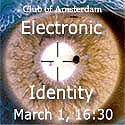
Club of Amsterdam Open Business Club
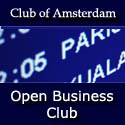
Reader Interactions
Leave a Reply
Club of Amsterdam Open Business Club
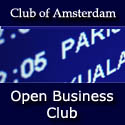 |

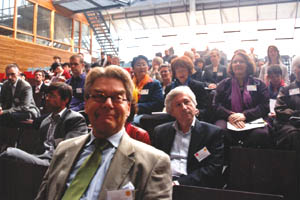
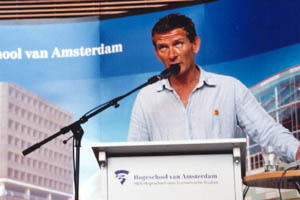
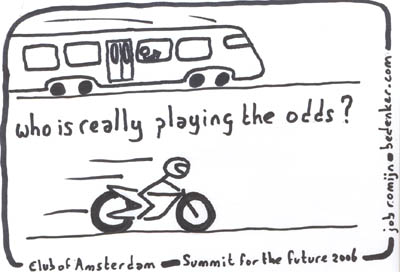
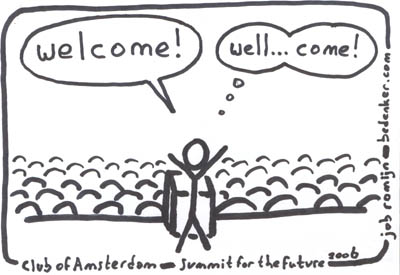
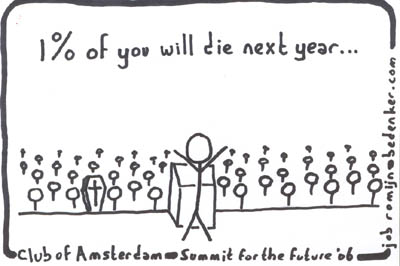
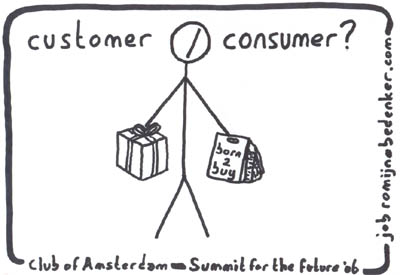
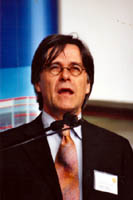
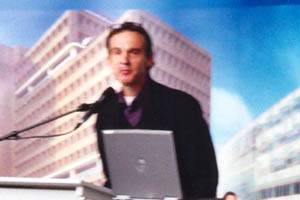
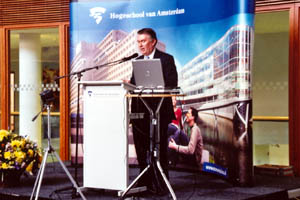
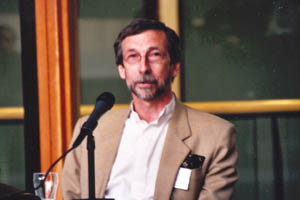
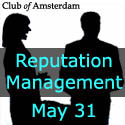


Customer Reviews
Thanks for submitting your comment!